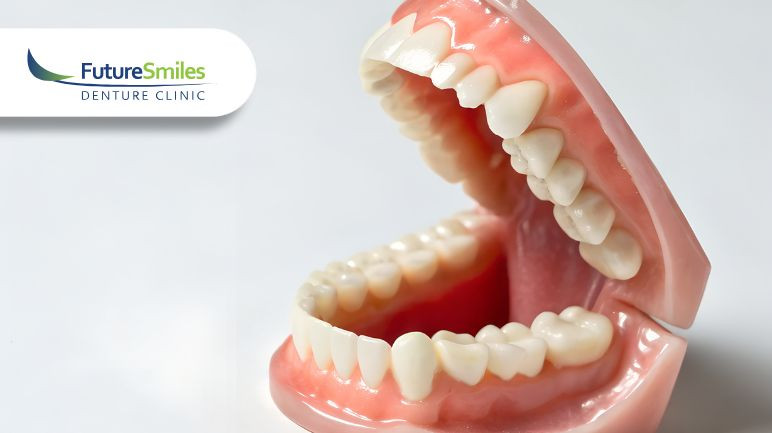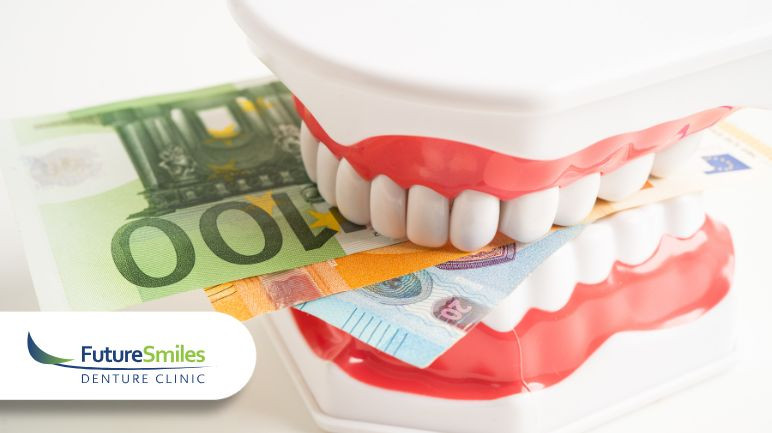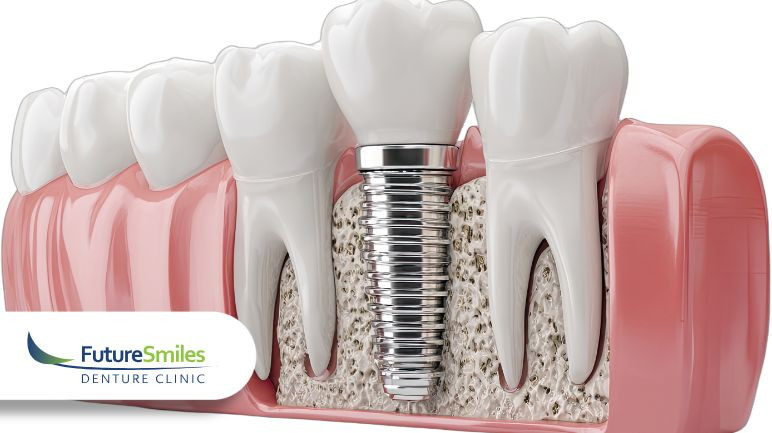It has been estimated that 69 percent of Americans age 35 to 44 have at least one missing tooth, and one in four over the age of 74 have lost ALL their natural teeth, according to the American Academy of implant dentistry.
A single missing tooth implant seems almost self-explanatory: it is an implant placed in the jaw that your denturist secures a crown to, replacing one missing tooth. In this blog, we'll give you a rundown of how the procedure works, who it's best for, and how much it costs.
How Does A Single Implant Procedure Work?
Step 1: Dental Implant Consultation: Are You A Candidate>
The exact details of a single implant procedure can depend on your unique situation. That's why a consultation is always essential.
Typically, a person may require a tooth implant due to:
- a tooth that had become damaged, loose, or lost due to the ageing process or oral health issues,
- trauma to the face area, such as a car accident or sports mishap,
- a patient having a fewer than normal number of adult teeth,
- medical issues that cause the early loss of teeth.
Your consultation may also include:
- X-rays
- impressions
- an assessment of your jawbone and bone density
Special factors your denturist may take into consideration:
- If you are naturally lacking a tooth in this area, or if your teeth have shifted after the loss of a tooth, your denturist may examine whether there is space for the tooth in this area. If there is no space in the area, you may be required to wear braces to create a space for your new implant.
- Some patients suffering from dental damage or decay may require the extraction of a tooth before the implant procedure.
- If there is not enough jawbone in the implant location, your denturist may prescribe bone grafting. It can take several months for the bone graft to be ready for the implant.
Factors which can affect your candidacy:
- Active gum disease
- Thin gums
- Not enough bone height in the upper jaw
- Sinuses that are too close to the jaw
These factors don't automatically disqualify you from being able to get a bone graft procedure, but these issues may need to be treated before you can proceed with implant procedure.
Step 2: First Dental Implant Surgery
At your first surgery, your denturist will add an implant. For single tooth implants, the implant is usually a root-shaped implant made of titanium or another material like zircona. You will then wait for the implant to fuse with the jawbone. During this phase, the gum tissue may grow over the implant.
Step 3: Second Dental Implant Surgery
You will then have a second surgery, where the gum will be cut to put the abutment in place. Depending on your case, your denturist either put the abutement in right away, or they may put on a healing abutment that will stay in place for a few weeks to guide the gum tissue away from the area where the tooth implant will be.
Once your abutment is placed, your dental care professional can cap it with a temporary crown. This crown allows your gums to heal more. After a few weeks, the final crown can be placed.
Dental Implant FAQ
How Long Does The Process Take?
This procedure depends on several different variables, such as whether you have had a tooth extraction; whether you need bone grafting; and how quickly your body heals. The shortest time frame from start-to-finish for a full dental implant procedure is about 5-6 months. This may seem like a long time, but it is well worth the wait to get a beautiful, healthy smile that will last your for years to come.
How Long Does A Dental Implant Last?
Implants can last up to 25 years when cared for properly. For very young individuals, you may require later procedures to replace the crown. You can keep your implant in good condition by brushing and flossing regularly, visiting your denturist and dentist frequently, and avoiding unhealthy habits like smoking or chewing hard, sugary foods.
Considering Dental Implants? Calgary denturists at FutureSmiles Can Help!
If you have a lost or damaged tooth and are looking for a way to restore your smile, give our experienced team a call! You can reach us at 403-475-0016, or through our online contact form.






